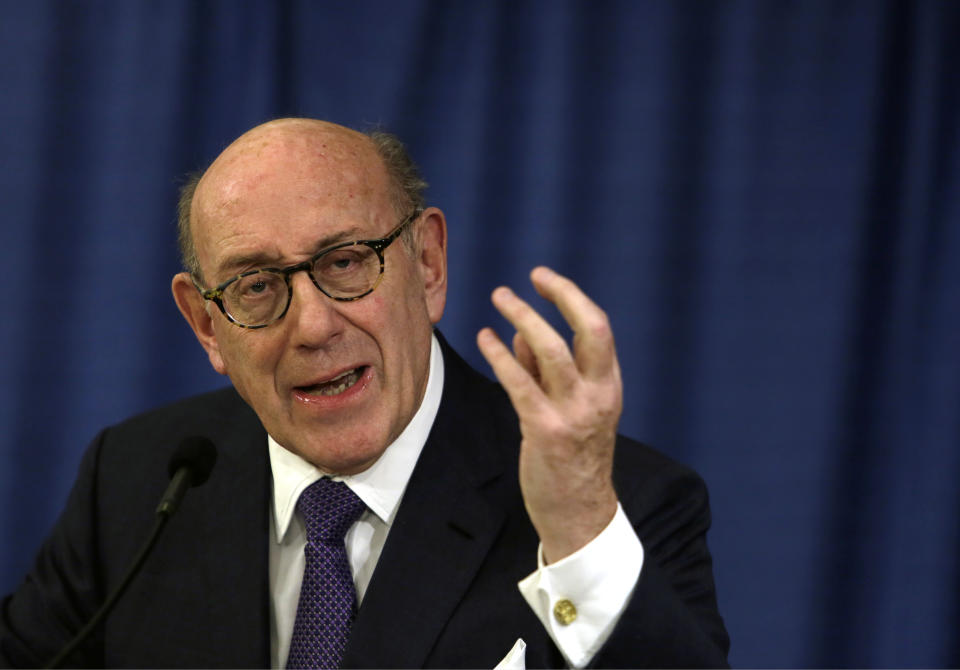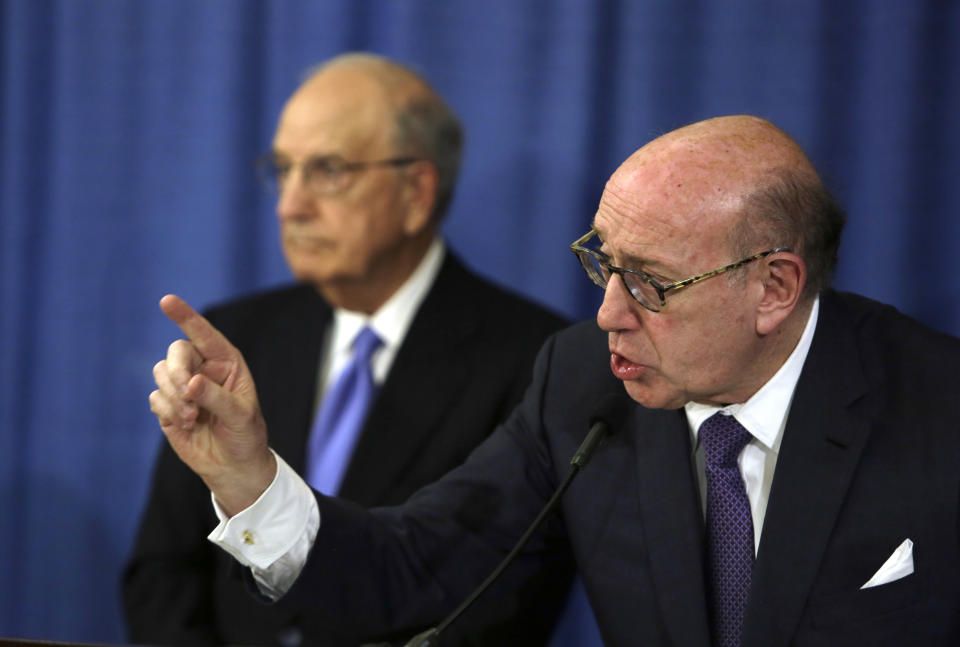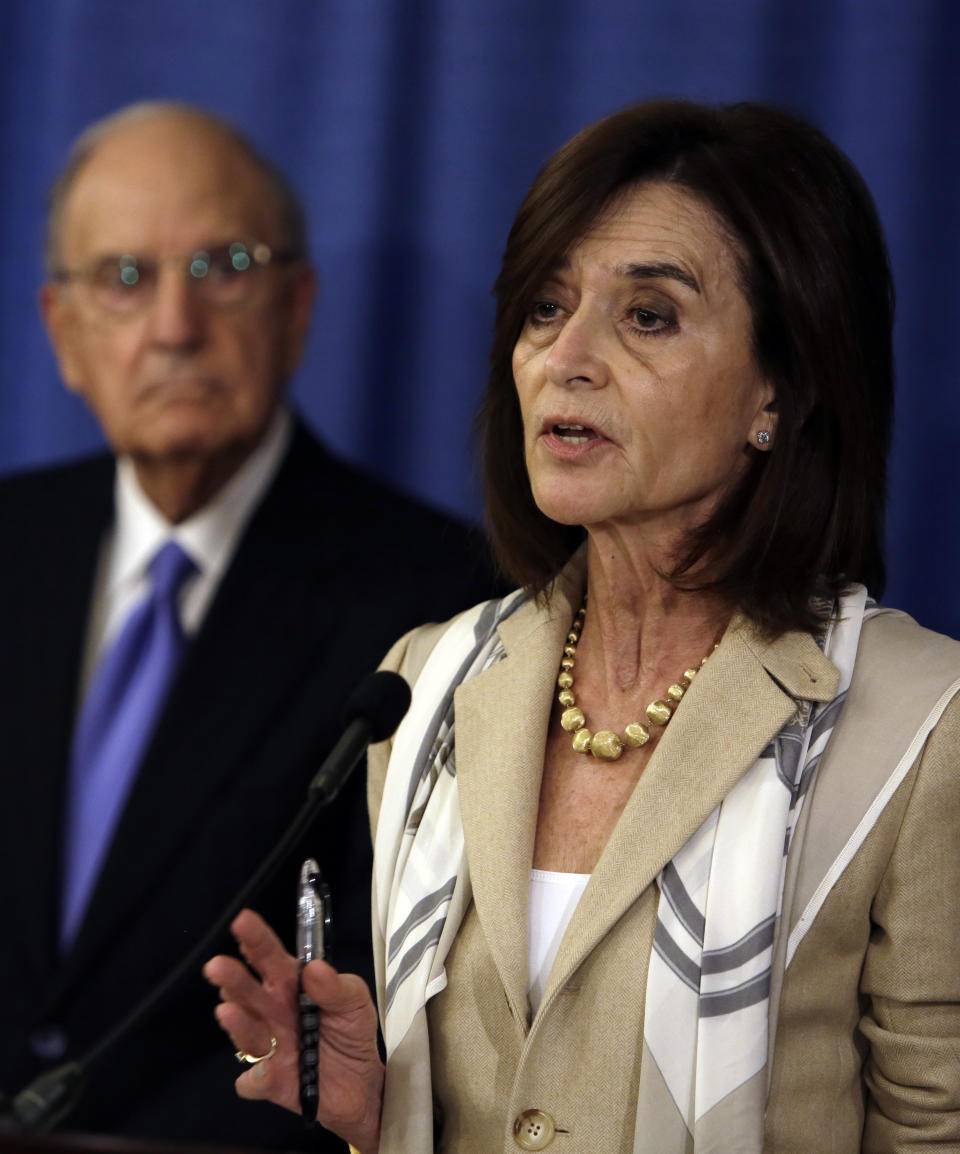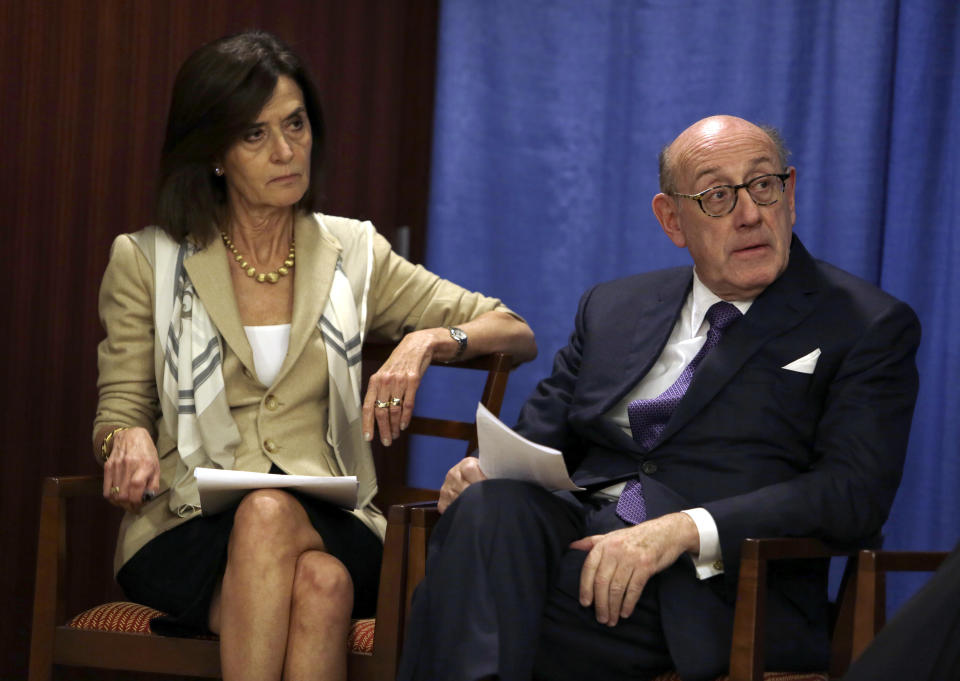Claims process open for victims of Philadelphia clergy abuse
PHILADELPHIA (AP) — Officials from the Roman Catholic Archdiocese of Philadelphia have agreed to pay uncapped compensation offers for victims of child sexual abuse by clergy as part of a claims process that started Tuesday.
Details of the Philadelphia program were discussed at a news conference held by independent claims administrators and members of an independent oversight committee who said they've already mailed out informational packets to 342 survivors who previously reported credible abuse claims. The Philadelphia Archdiocese's program is the first victim compensation fund initiated since a chilling grand jury report was released in August detailing child sexual abuse over seven decades by hundreds of priests in six of Pennsylvania's catholic dioceses. Philadelphia had previously been the subject of a local grand jury investigation that found similar patterns of abuse.
Victims in the Philadelphia Archdiocese, which covers Philadelphia city and county, as well as Bucks, Chester, Delaware and Montgomery counties, must register claims by July 31 and file them by Sept. 30 under the program. Most of the state's seven other dioceses are expected to follow with their own compensation funds opening to claims early next year, according to statements released late last week. Altoona-Johnstown said it set up a victim fund in 1999.
Five of the dioceses— including Philadelphia— have hired veteran compensation fund coordinator Ken Feinberg to design and operate their programs. Feinberg and co-administrator Camille Biros ran victims' compensation funds set up by five New York dioceses in recent years. Feinberg was also the administrator of several other high-profile compensation funds including for the Aurora, Colorado theater shooting victims and as special master for the September 11th Victim Compensation Fund.
At the news conference Tuesday, Feinberg outlined several features of the Philadelphia program that make it different from others in the past, including it is completely independent and voluntary.
"The program in awarding compensation really performs two functions with the victim. People focus on the money," he said. "No amount of money is going to provide closure to that victim or satisfy the victim. It is a small step in helping that victim at least secure some degree of financial security. Just as importantly we have found in our work in New York, that a claimant who files a claim with us and receives compensation finds some degree of validation as to that claim. Do not underestimate the importance of this."
Payouts and total fund amounts will not be disclosed by the diocese, and church officials will have no say in decisions about eligibility or payout amounts. There will be no appeals process, and if a claimant accepts a compensation offer, they must waive their right to sue the archdiocese for any past or future abuse.
Lawyers who help settle child sexual abuse cases say courts generally promise a bigger payout, while dioceses face the possibility a judge can order them to divulge records of child sexual abuse complaints and how they handled them. Plaintiffs also can extract court-approved agreements from dioceses to add procedures or training to better protect children going forward. Some of the money goes to lawyers' fees, and the church's defenders say that motivates civil lawyers.
While payouts won't be capped, $500,000 is the most paid out to one individual during Feinberg's administration of claims against the New York dioceses. The size of the payouts is determine by numerous factors, including the severity of the abuse, the age of the victim and the long-term effect on the victim's life.
A victim compensation often delivers a faster payout to victims. Biros said once claims are filed, most should be processed and paid within 90 days.
Victims do not have to accept the compensation offers, and don't have to waive their right to sue if they reject an offer. But many victims may fall outside the window to file a civil claim against the Archdiocese under Pennsylvania law.
A legislative effort to change state law to allow a two-year window for people to sue in abuse cases that are otherwise too old to pursue passed the state House, but it was blocked by Republican state senators last month. Opponents, including Catholic bishops and the insurance industry, expressed concerns about the cost and argued that a retroactive change would violate the state constitution.
Proponents have said negotiations on the change are continuing.
State Attorney General Josh Shapiro, whose office oversaw the grand jury investigation, said the grand jury "recommended that victims deserve their day in court — not that the church should be the arbiter of its own punishment."
The Philadelphia Archdiocese said its program will be overseen by the independent committee, including former U.S. Sen. George Mitchell of Maine, former interim Philadelphia District Attorney Kelley Hodge and Lawrence Stengel, a retired federal judge. The diocese plans to sell properties as one way to bolster the fund, but will not dip into money for charities, seminaries, donor-designated gifts or donations to parishes, ministries or schools.
The program offers pro-bono legal representation if victims want a lawyer and offers help from a victim support facilitator who can help with the claims process.




